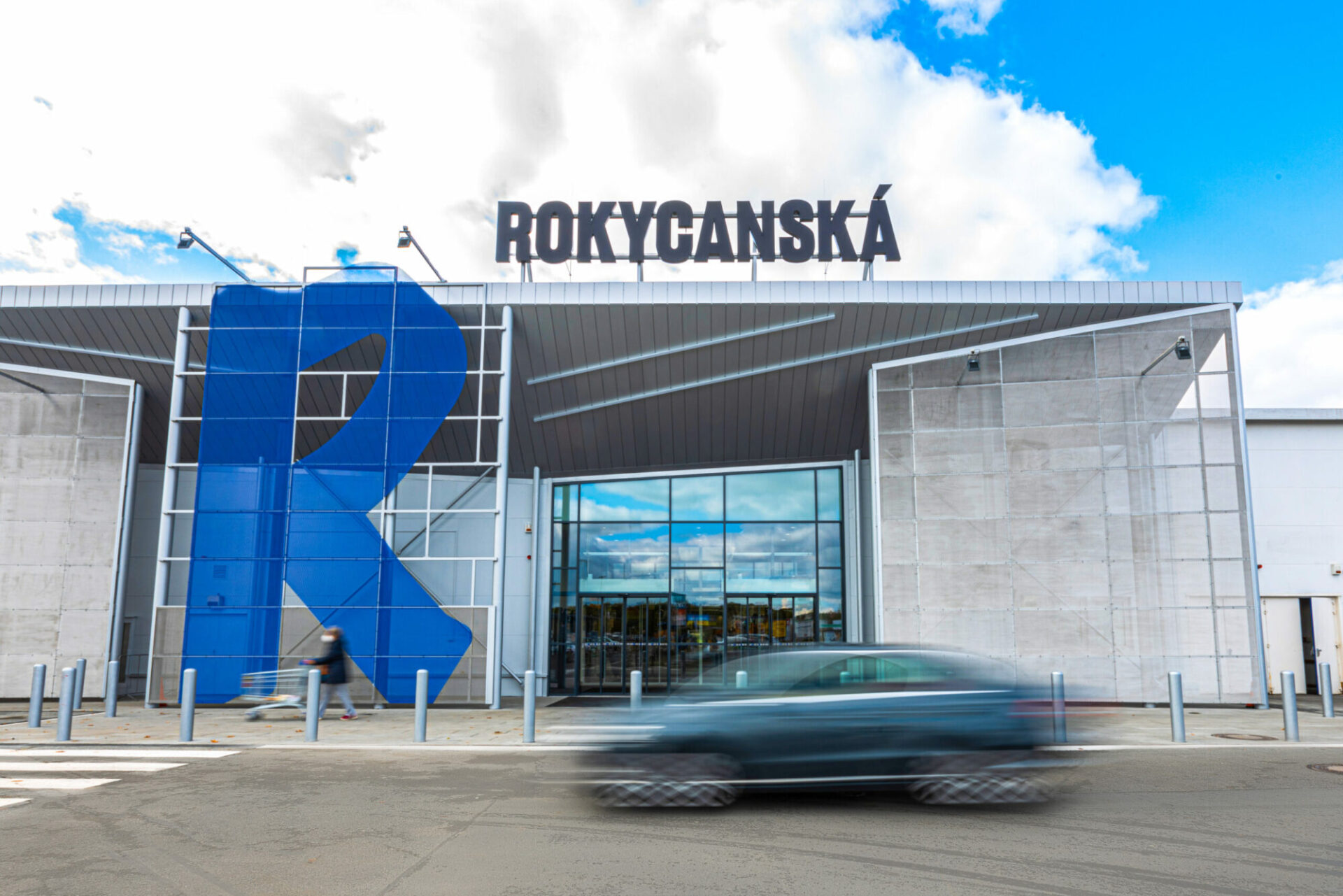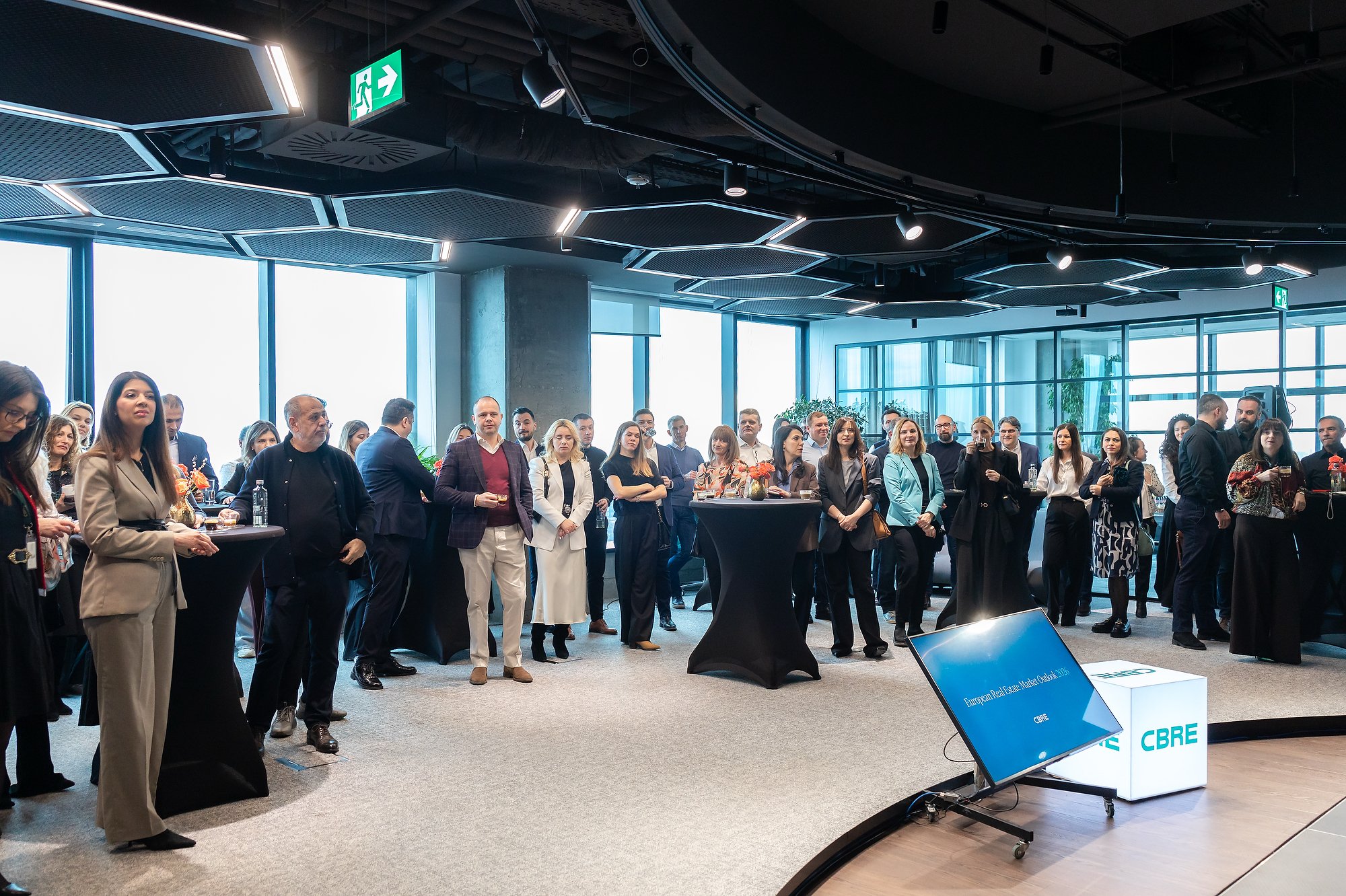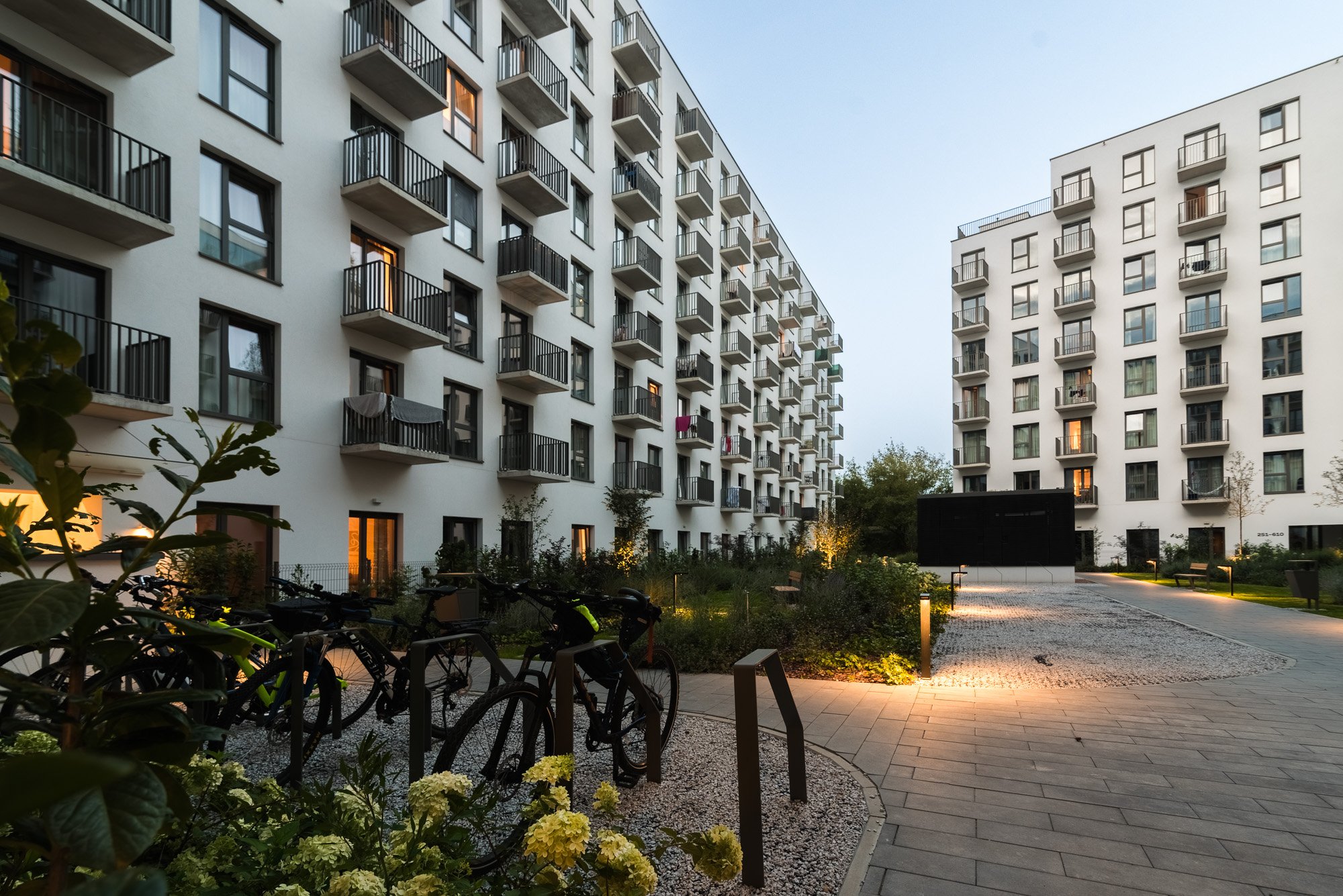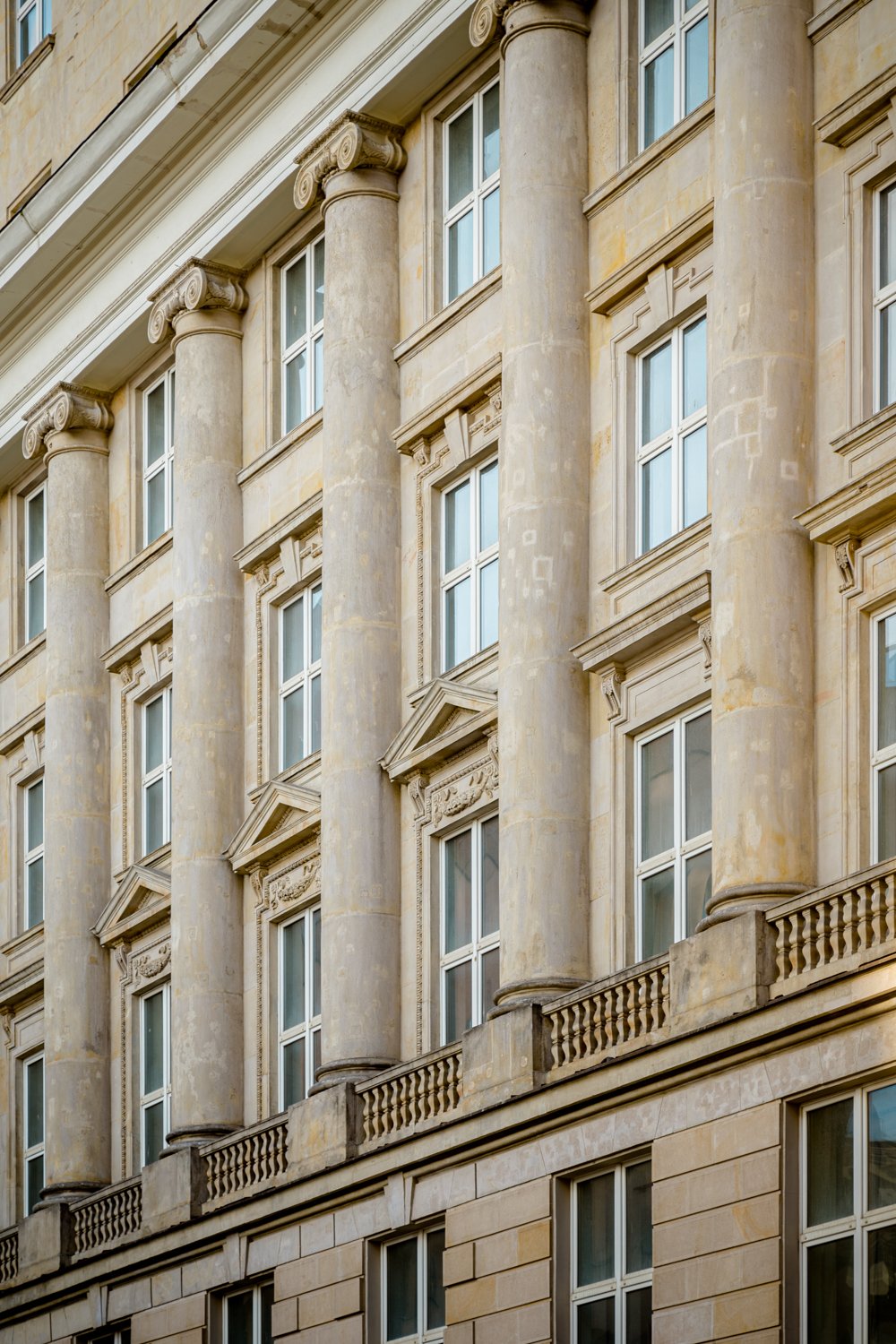Despite the severe impact on economic activity triggered by the Covid-19 pandemic, the European commercial real estate market is well-positioned for recovery, with investment volumes expected to return to pre-pandemic norms till the end of 2022, according to the EMEA Real Estate Market Outlook 2022, published by a global commercial real estate advisor CBRE. This will be also reflected in the commercial real estate market in the Czech Republic.
Clare Sheils, Managing Director, CBRE Czech Republic said: “After two years marked by disruption, loss, lockdown, and reopening, we are hopeful that in 2022 we can finally move on from discussions on Covid numbers. Instead, 2022 will be full of discussions on Inflation and the transition to Net Zero Carbon. We expect a strong start to 2022 in the Investment market, with Industrial continuing to lead the way, but a strengthening retail sector should draw interest as well, especially for investors in search of higher yields and better returns.”
Investment market: Czech market – a highly desired market
Demand for Czech commercial real estate remains strong. The Czech market is established as a highly sought-after market, providing solid returns to existing investors, well protected against market fluctuation, supported by strong international and local capital, with rental growth prospects in several segments and still attractive yield returns in comparison to western European markets. Appetite for assets remains strong, with a lack of products seen in all segments.
CBRE expects total Czech investment volumes to reach below €2 billion in 2021. We saw a reassessment of investor strategies, a revisiting of postponed transactions and the launch of new ones, which is now visible on the closed transactions volume, as it is steadily increasing.
Katarína Brydone, Head of Investment Properties in CBRE, commented: “The logistics investment markets will remain strong. Unprecedented occupational demand, with record low vacancy rates and good rental growth prospects, will further fuel investor interest in the industrial and logistics segments. Residential (PRS) investments are highly sought-after by both local and international capital, however, we expect low volumes in 2022, as continuously rising sale prices of individual apartments, provide little motivation for developers to develop PRS projects. Retail parks have proven to be attractive products; however, we see the lack of those products for investors with demand exceeding the supply. We anticipate increased activity in shopping centre investments in 2022, as yields of other asset classes compressed significantly over the last two years, making shopping centre investment attractive from a yield point of view. On the other hand, we do not await a large number of deals happening in H1 2022, however, we expect the investment volumes to grow as the risk of lockdowns will weaken even further. We presume strong recovery of the majority of shopping centres, as it is apparent from summer and autumn numbers. In-office segment, we also record a strong interest from investors, and if anything, we see a lack of supply of quality investment product, which is a consequence of low development activity in Prague.”
The Czech Republic has a very strong base of Czech Institutional funds, which account for almost half of the market. Expectations are that Czech funds will continue to grow in the upcoming years and the Czech market will remain their strong preference although some of them are already seeking deals in Polish and Slovak markets.
ESG has become a hot topic among international buyers, especially in the office sector. We expect this trend to continue on importance in coming years and many landlords/developers are considering future proving their assets by implementing ESG into their asset management and development strategies.
Offices: Further year of leasing recovery
In 2021 CBRE has monitored a recovery in office leasing activity in Prague compared to 2020. European office markets, including Prague, are taking positive leasing momentum into the new year, and we expect this to strengthen through 2022. CBRE expects that the growing adoption of new working patterns will drive both a general flight to quality and growing demand for flex space.
The vacancy rate has risen during the past two years, currently standing at 8 percent but it is expected to flatten in 2022. There is currently approximately 172,800 sqm of office space under construction with around 85,000 sqm scheduled for 2022. Stronger demand and relatively low new supply should prevent the vacancy rate from further increasing in the following years.
New prime projects under construction together with the low availability of premium space on the market will drive prime rental increases. Prague’s office market shifted more in favour of tenants and landlords are pressed to improve incentives. At present, we observe a higher level of incentive – longer rent-free periods and higher fit-out contributions, also in the case of renegotiations. This trend should continue through 2022.
As well we expect to see clearer signals in corporates´ adoption of new working patterns in 2022, with hybrid working policies implemented more widely. Flexibility, wellness and sustainability (esp. air quality) and technology integration are now three central factors that influence occupiers´ building selection (CBRE Office occupier sentiment survey, summer 2021).
Simon Orr, Director in A&T – Offices in CBRE, said: ‘‘Hybrid workplaces and flexible working arrangements already preceded the covid pandemic are becoming an even bigger feature for office-based employers. Smart companies are constantly assessing and refining their workplace policies to suit these changing needs. It doesn’t necessarily mean less office space but it does mean different office space.”
Logistics: The sector will continue to outperform in 2022
Occupiers are rethinking their global supply chains, out of which the Czech Republic may benefit the next year. At the same time, e-commerce players and third-party logistics companies will continue to acquire space to serve the increased consumer demand from the online channel. Online retailing, accelerated by the pandemic, is expected to grow further and will continue to drive demand for Logistics space in 2022 in the Czech Republic.
Jan Hřivnacký, Head of Industrial Leasing in CBRE, added: “Already, in the first three quarters of 2021, more industrial & logistics space was newly leased than in any other year. With such high demand and record low vacancy rates at around 2.5 percent in Q3 2021, prime rental levels remain under upward pressure. Prime rents increased by 12 percent y-o-y (one of the highest increases in Europe) and are expected to grow further in 2022.”
As of Q3 2021, there was nearly 900,000 sqm under construction, with around 500,000 sqm scheduled for delivery in 2022 so far. In Q3, we have recorded a decrease in speculative construction to ca 26 percent and the trend of lower speculative construction is expected to continue throughout 2022.
The slow permitting process in the Czech Republic may prolong transactions going forward.
Sustainability is starting to become a priority for logistics occupiers, influencing the current wave of development in a way not seen before. The tight labour market leads to the greater implementation of automation and we expect this trend will accelerate next year.
Retail: Closer integration of the online and offline experience
Although the footfall and even more retail sales have been recovering gradually from the pandemic, the market is threatened again by the downside risks related to an increase of Covid-19 cases, which will most likely affect the beginning of 2022. The duration of any protective measures will have a major impact on the sales development and their possible recovery to the pre-pandemic levels. CBRE expects ongoing pressure on rents, as well as on rental discounts, contributions, and flexibility in the length of leases.
Other key factors that will affect the retail market in the Czech Republic in the upcoming year are inflationary pressures for both retailers and consumers, supply chain disruption and lack of staff. During the pandemic, transport and material costs increased, which has been reflected in higher product prices, which have already been announced by several large retail chains. The rise in energy prices will be significantly reflected in service charges. Furthermore, a higher inflation rate will notably affect the indexation of retailers with rents listed in Czech crowns.
A shift in customer preferences towards the consumer and household goods resulted in preferring grocery and convenient retail such as retail parks and this trend will continue. In 2022, CBRE expects an ongoing expansion of discount chains in the Czech market. On the contrary, a longer period with implemented protective measures can fundamentally affect the Food & Beverage sector, one of the most hit sectors, and could result in a reduction in the number of stores or closure of the business.
While the popularity of e-commerce has accelerated during the pandemic and we expect its ongoing high penetration on retail sales, the success of store-based retail will rely on a strong omnichannel strategy and a closer integration of the online and offline experience.
Tomás Míček, Head of Retail Sector in CBRE, commented: “The current pandemic situation, digitization and e-commerce are accelerating a change in human behaviour. People will still shop, but the question is where and how often. Shopping centres and retailers must respond to these changes and adapt, for example, by linking physical shopping to e-commerce, offering services, an attractive environment or enhancing the customer experience.”







